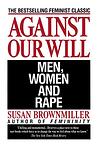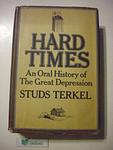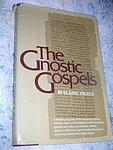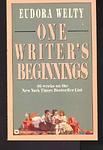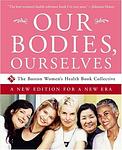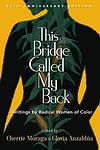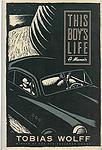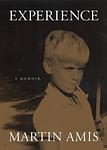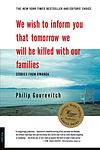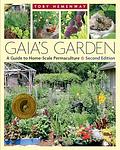The Greatest "Nonfiction" Books Since 1970
Click to learn how this list is calculated.
This list represents a comprehensive and trusted collection of the greatest books. Developed through a specialized algorithm, it brings together 284 'best of' book lists to form a definitive guide to the world's most acclaimed books. For those interested in how these books are chosen, additional details can be found on the rankings page.
Genres
Countries
Date Range
Reading Statistics
Click the button below to see how many of these books you've read!
Download
If you're interested in downloading this list as a CSV file for use in a spreadsheet application, you can easily do so by clicking the button below. Please note that to ensure a manageable file size and faster download, the CSV will include details for only the first 500 books.
Download-
51. Against Our Will by Susan Brownmiller
This book is a comprehensive study of rape throughout history, examining its use as a tool of domination and control, and its societal implications. The author argues that rape is not about sex but about power, and that it is a pervasive issue deeply ingrained in society's patriarchal structures. The book also explores the legal and cultural attitudes towards rape, highlighting the need for change in societal perception and response to this crime.
-
52. Hard Times: An Oral History of the Great Depression by Studs Terkel
This book is a compelling oral history of the Great Depression, featuring a collection of interviews from a diverse range of individuals who lived through the era. The interviewees include both the ordinary people and famous figures of the time, from businessmen and politicians to artists and criminals. The book provides a vivid, first-hand account of the economic hardship, social changes, and emotional struggles experienced by people during the 1930s, offering a unique perspective on this significant period in American history.
-
53. Me Talk Pretty One Day by David Sedaris
This book is a collection of humorous, autobiographical essays that explore the author's experiences and observations in his life. The first part of the book focuses on his upbringing in North Carolina, his Greek heritage, his relationship with his eccentric family, and his early jobs. The second part of the book details his move to Normandy, France, his struggle to learn the French language, and his observations of French culture. The author's self-deprecating humor and sharp wit provide a satirical view of his life's journey.
-
54. The Color of Water: A Black Man's Tribute to His White Mother by James McBride
This book is a moving memoir that tells the story of a biracial man raised in a housing project in Brooklyn by his white, Jewish mother. The narrative alternates between the author's perspective and his mother's, providing a nuanced view of issues related to race, religion, and identity. The author's mother, a Polish immigrant, married a black man in the 1940s and raised twelve children in the midst of poverty and racial tension. Despite the hardships, she instilled in her children the importance of education and self-reliance. The book is a tribute to the strength, resilience, and love of this remarkable woman.
-
55. Roll, Jordan, Roll by Eugene Genovese
"Roll, Jordan, Roll" is a comprehensive exploration of slavery in the United States, specifically focusing on the complex relationships between slaves and their masters. The book examines how slaves managed to preserve their culture, humanity and dignity, while also highlighting the paradoxical nature of a system where slave owners were dependent on their slaves for their livelihoods. It delves into the ways in which slaves resisted their oppression, and the strategies they employed to survive and create their own communities within the confines of the brutal institution of slavery.
-
56. The Road Less Travelled by M. Scott Peck
This self-help book explores the concept that life is difficult and filled with problems, but we can overcome these issues through discipline, love, and spiritual growth. It encourages readers to confront their personal problems head-on, rather than avoiding them, and to accept responsibility for their actions. The book also delves into the nature of love, suggesting it is less about feelings and more about the act of will. Finally, it discusses the importance of spiritual growth and understanding in achieving a fulfilled life.
-
57. I, Rigoberta Menchú: An Indian Woman in Guatemala by Rigoberta Menchú Tum
This book is an autobiographical account of a woman who grew up in a small village in Guatemala during a time of extreme political turmoil. Despite facing poverty, racism, and violence, she becomes a prominent activist for indigenous rights. Her story provides a firsthand account of the hardships and injustices faced by the indigenous people in Guatemala, and her tireless fight for their rights eventually leads her to win the Nobel Peace Prize.
-
58. The Habit of Being by Flannery O'Connor
"The Habit of Being" is a collection of personal correspondence by a renowned southern writer, offering a profound insight into her private life, thoughts, and creative processes. These letters, written over a span of two decades, reveal her struggle with lupus, her strong Catholic faith, her sharp wit, and her dedication to writing. The book also provides a glimpse of her relationships with literary contemporaries and her insightful thoughts on contemporary issues, literature, and religion.
-
59. The Journalist and the Murderer by Janet Malcolm
The book is a gripping exploration of the uneasy relationship between journalists and their subjects. It delves into the ethical dilemmas faced by journalists when they become too involved with their subjects. The narrative centers around a lawsuit between a convicted murderer and the author who wrote about his case, revealing the blurred lines between objectivity and subjectivity in journalism. The book also raises questions about the morality and responsibility of the journalistic profession.
-
60. The Immortal Life of Henrietta Lacks by Rebecca Skloot
The book tells the story of Henrietta Lacks, a poor African American tobacco farmer whose cells, taken without her knowledge in 1951, became one of the most important tools in medicine, vital for developing the polio vaccine, cloning, gene mapping, and more. Henrietta's cells have been bought and sold by the billions, yet she remains virtually unknown, and her family can't afford health insurance. The book explores the collision between ethics, race, and medicine; of scientific discovery and faith healing; and of a daughter consumed with questions about the mother she never knew.
-
61. The Gnostic Gospels by Elaine Pagels
This book explores the findings of the Nag Hammadi library, a collection of gnostic texts discovered in 1945. The author examines these texts, which were excluded from the canonical Bible, and discusses their implications for our understanding of early Christianity. The book delves into the diversity of beliefs in early Christian communities, the role of women in these groups, and the political and theological reasons behind the formation of the orthodox Christian canon.
-
62. One Writer's Beginnings by Eudora Welty
This memoir explores the author's early life in Mississippi and her journey towards becoming a writer. The narrative is divided into three sections: Listening, Learning to See, and Finding a Voice, which respectively discuss the author's childhood memories, her education and love for reading, and her growth as a writer. The book delves into the author's personal experiences, her family history, and the influence of the Southern United States on her work.
-
63. Our Bodies, Ourselves by Unknown
This book is a comprehensive guide to women's health and sexuality, covering a wide range of topics from puberty to menopause. It emphasizes the importance of self-care and provides practical information on topics such as reproductive health, sexual orientation, body image, mental health, and domestic violence. The book is designed to empower women to make informed decisions about their health and well-being, and it encourages them to take control of their own bodies. It also includes personal stories and experiences from diverse women, reflecting a wide range of perspectives and experiences.
-
64. The Devil In The White City by Erik Larson
This book intertwines the true tales of two men during the 1893 Chicago World's Fair: Daniel H. Burnham, the architect responsible for the fair's construction, and H.H. Holmes, a serial killer masquerading as a charming doctor. The narrative alternates between the story of Burnham, his challenges and successes in building the fair, and the chilling story of Holmes, who used the fair to lure his victims to their death. It's a vivid portrayal of the Gilded Age and a chilling exploration of one of America's first known serial killers.
-
65. Sister Outsider by Audre Lorde
"Sister Outsider" is a collection of essays and speeches that delve into the complexities of intersectional identity, exploring themes of racism, sexism, and homophobia. The author, a black lesbian poet and feminist writer, challenges the marginalization of minority groups and critiques the lack of inclusivity within feminist movements. Through personal narratives and powerful prose, the work confronts social injustices and calls for the recognition and celebration of differences as a means to drive political change and dismantle systemic oppression. The book is a seminal text in intersectional feminist thought, advocating for solidarity and the importance of communication across diverse communities.
-
66. This Bridge Called My Back by Cherríe Moraga, Gloria Anzaldúa
This seminal anthology is a groundbreaking collection of essays, personal reflections, poetry, and critical analysis from a diverse group of women of color. It explores the complexities of their intersectional identities, focusing on the challenges and experiences they face due to their race, gender, class, and sexuality. The work serves as a foundational text in feminist theory, providing a platform for voices that had been marginalized within the feminist movement. It delves into themes of social justice, cultural identity, and political activism, calling for solidarity and empowerment among women of color as they navigate the overlapping oppressions of a patriarchal and racist society.
-
67. This Boy's Life by Tobias Wolff
This memoir explores the author's challenging childhood as he moves across the country with his divorced mother, fleeing an abusive relationship and seeking a better life. The young boy struggles with his identity, often resorting to lies and deceit to create a more favorable image of himself. As he navigates adolescence in a small town in the 1950s, he contends with a violent stepfather, school troubles, and his own rebellious nature. Despite the adversity, he maintains a sense of hope and resilience, offering a compelling portrait of a young man coming of age in post-war America.
-
68. Experience by Martin Amis
"Experience" is a memoir which delves into the author's life, exploring his relationships with his family, friends, and his own self. The narrative is a candid reflection on his father's influence, his friendships with other writers, his marriages, and his children. The author also discusses his experiences with fame, age, and loss, providing an intimate look into his personal and professional journey. The memoir is a blend of the author's unique humor, sharp observations, and poignant moments, offering a compelling and deeply personal narrative.
-
69. A Time Of Gifts by Patrick Leigh Fermor
The book is a vivid memoir that chronicles the adventures of a young man as he embarks on a remarkable journey on foot across Europe in the 1930s. Starting from the Hook of Holland, he traverses through landscapes and cities, encountering a diverse tapestry of cultures, languages, and historical remnants. Along the way, he is welcomed by a variety of individuals, from aristocrats to peasants, who enrich his experience with their stories and hospitality. His travels provide not only a physical journey through the continent but also a journey through time, as he reflects on the complexities of Europe's past and the ominous shadows cast by the approaching Second World War.
-
70. We Wish to Inform You That Tomorrow We Will Be Killed With Our Families: Stories from Rwanda by Philip Gourevitch
This book is a chilling account of the Rwandan genocide that took place in 1994, where an estimated 800,000 to 1 million Tutsis and moderate Hutus were systematically murdered within a span of 100 days. The author provides a detailed narrative based on interviews with survivors and perpetrators, shedding light on the horrifying events, the international community's failure to intervene, and the aftermath of the genocide. The book serves as a powerful critique of political indifference and a poignant exploration of the depths of human brutality.
-
71. The Last Lion by William Manchester
"The Last Lion" is a comprehensive biography of Winston Churchill, providing an in-depth look at his life, from his birth in 1874 to his death in 1965. The book covers Churchill's early years, his military service, his time as a journalist, and his political career, including his role as British Prime Minister during World War II. It also delves into his personal life, relationships, and struggles with depression. The book presents a nuanced portrayal of Churchill, highlighting his strengths, flaws, victories, and defeats.
-
72. Gaia by James Lovelock
The book presents a groundbreaking hypothesis that redefines Earth as a self-regulating system, where the biosphere, atmosphere, oceans, and soil function as a single living organism. This entity, named after the Greek goddess of Earth, maintains the conditions necessary for life through complex interactions among its components. The author, an independent scientist, argues that life on Earth actively shapes the environment for its own survival, challenging traditional views of the relationship between organisms and their habitat. The work has sparked widespread debate and research, influencing fields from biology to environmental science, and has profound implications for our understanding of life on Earth and how we approach environmental stewardship.
-
73. The Uses of Enchantment by Bruno Bettelheim
"The Uses of Enchantment" is a psychological analysis of fairy tales and their importance in childhood development. The book argues that these stories allow children to navigate their emotions and understand aspects of life they are yet to experience. By exploring various themes, such as separation anxiety, oedipal conflict, and sibling rivalry, through well-known fairy tales, the author demonstrates how these narratives contribute to a child's moral education and understanding of the human nature.
-
74. Before Night Falls by Reinaldo Arenas
"Before Night Falls" is an autobiographical work that chronicles the life of a young Cuban man growing up during the political turmoil of the Cuban Revolution. The protagonist, a rebellious writer and poet, grapples with his sexual identity in a society that is deeply homophobic. Despite facing persecution, imprisonment, and exile, he remains defiant and committed to his art and personal freedom. His story provides a candid and deeply personal perspective on the harsh realities of life under Fidel Castro's regime.
-
75. The Drowned and the Saved by Primo Levi
This book is a deeply moving exploration of the Holocaust, written by a survivor. It delves into the horrifying experiences at Auschwitz, examining the psychological impact on the prisoners, the brutal behavior of the guards, and the complex moral dilemmas faced by both. The author also discusses the concept of memory and its unreliability, especially in the context of such traumatic events, and analyzes the ways in which the Holocaust has been represented and remembered in society. The book serves as a profound meditation on the human condition under extreme circumstances.
Reading Statistics
Click the button below to see how many of these books you've read!
Download
If you're interested in downloading this list as a CSV file for use in a spreadsheet application, you can easily do so by clicking the button below. Please note that to ensure a manageable file size and faster download, the CSV will include details for only the first 500 books.
Download